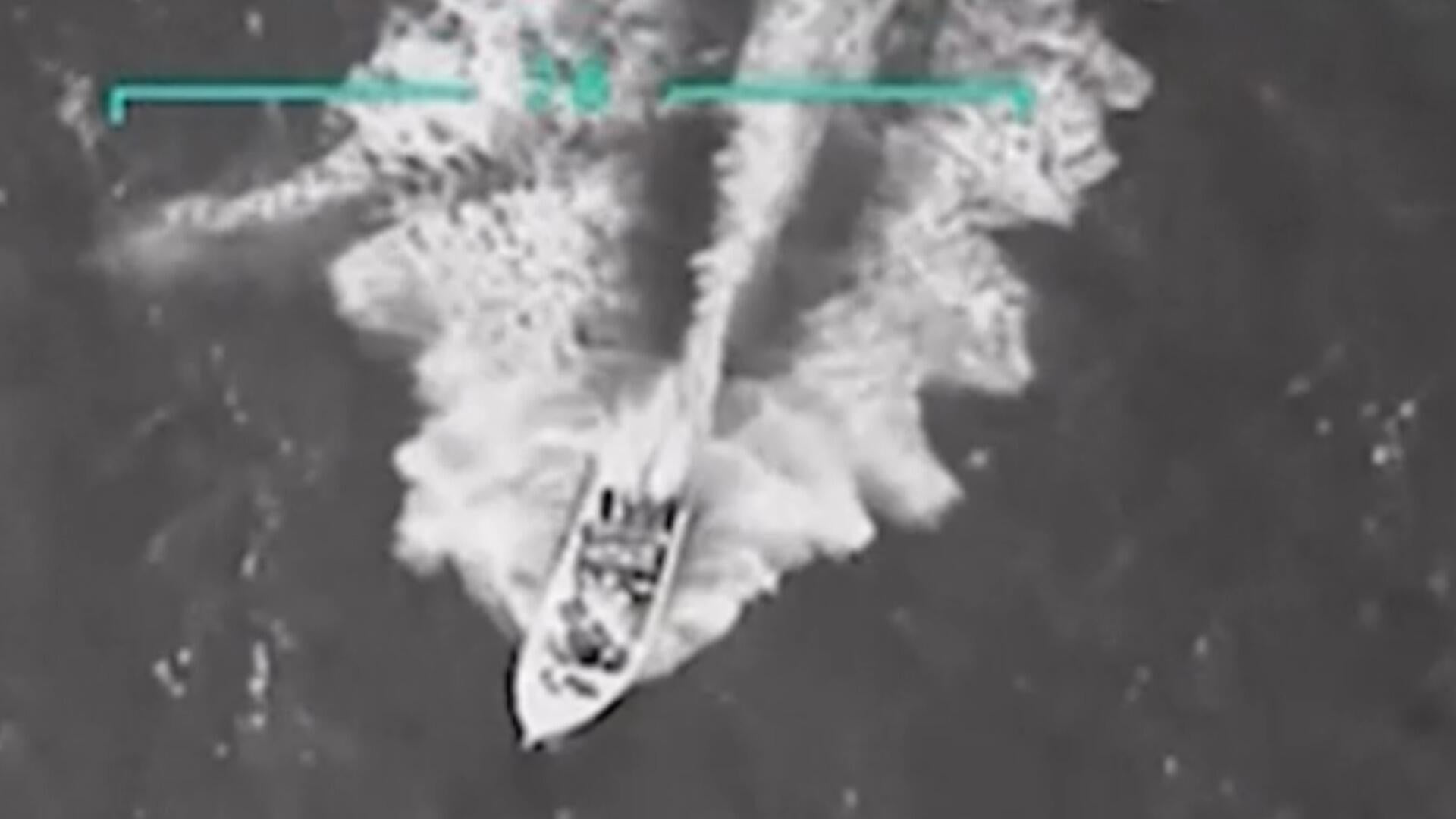# US Naval Strike on Venezuelan Drug Boat: Implications & Controversy
The recent US military strike targeting a Venezuelan vessel allegedly carrying drugs has ignited a firestorm of debate across the globe. The Trump administration defends its actions, citing an immediate threat to US national security. However, the incident has raised serious questions about the effectiveness, legality, and potential ramifications of such aggressive anti-drug tactics. Let’s delve into the details and analyze the far-reaching consequences.
## The US Naval Strike: Justification and Fallout
The US government asserts that the vessel, crewed by members of the Tren de Aragua cartel – a group previously designated a foreign terrorist organization – posed an imminent threat. Secretary of State Marco Rubio defended the decision to destroy the boat, stating that standard interdiction procedures were deemed insufficient. “Interdiction doesn’t work,” Rubio declared, justifying the decision to “blow it up” rather than attempting a traditional arrest and seizure. This bold assertion highlights a fundamental shift in US anti-narcotics strategy, moving from interdiction to potentially more aggressive military action. But is this the right approach? What are the potential repercussions?
The strike resulted in the deaths of 11 individuals onboard. While the US maintains the action was necessary, the lack of detailed information and independent verification has fueled skepticism and criticism from various international actors. The incident highlights the complex ethical and legal dilemmas surrounding the use of lethal force in international waters, especially when dealing with suspected drug traffickers. How can we balance national security interests with the protection of human rights in such scenarios?
Secretary of Defense Pete Hegseth, further fueling the controversy, confirmed that US military assets will remain in the region, hinting at the possibility of future strikes. He emphasized the seriousness of the mission and vowed to continue targeting designated narco-terrorist organizations. This unwavering stance underscores the administration’s commitment to its new strategy, but raises serious questions about escalation and the long-term consequences of such aggressive actions.
## Ecuadorian Gangs & Regional Instability: A Broader Perspective
The timing of the strike coincided with Secretary Rubio’s trip to Ecuador, where he announced the designation of two Ecuadorian gangs, Los Lobos and Los Choneros, as foreign terrorist organizations. This move, Rubio asserted, provides the US government with a wider range of tools to combat these criminal organizations, including the ability to target their assets and even eliminate their members. But what are the long-term effects of such measures? Could this action inadvertently destabilize the region even further?
The designation of Los Lobos and Los Choneros reflects the growing concern over the escalating violence in Ecuador, fueled largely by the expansion of drug trafficking networks. The country’s strategic location, its banana exports (which provide perfect cover for drug smuggling), and its relatively weak institutions have made it a tempting target for cartels from Mexico, Colombia, and beyond. The surge in violence following the COVID-19 pandemic further exacerbated the situation. This alarming trend calls for a multifaceted approach that includes strengthening law enforcement, improving institutional capacity, and addressing the underlying socio-economic factors that contribute to the rise of criminal organizations. What measures can Ecuador take to effectively counter these deeply embedded criminal networks?
The recapture and subsequent extradition of Adolfo Macías, the leader of Los Choneros, underscores the transnational nature of these criminal enterprises and the challenges faced by law enforcement agencies in addressing them. The arrest of El Chino, the second-in-command of Los Lobos, further highlights the ongoing efforts to dismantle these powerful organizations. However, these individual successes are often just a small part of a much larger, complex problem.
### The Role of International Cooperation
The situation underscores the crucial need for international cooperation in combating drug trafficking and transnational crime. While the US has asserted its right to act unilaterally in cases of perceived immediate threats, collaboration with regional partners is essential for long-term success. Mexico, while careful not to directly condemn the strike, emphasized its preference for non-intervention and peaceful solutions. This highlights the inherent tension between the US approach and the views of many other nations in the region. What strategies can foster stronger cooperation and shared responsibility in addressing the regional narcotics crisis?
Ecuador, while thankful for US assistance in eliminating terrorist threats, also faces the complex challenge of balancing its relationship with the US while preserving its national sovereignty. The country’s economic and political stability is intimately tied to the success in tackling the drug trade. Moreover, there is a need to consider the humanitarian implications of such aggressive strategies. What are the unintended consequences that may arise from aggressive, unilateral action?
The recent UN World Drug Report reveals a surge in cocaine seizures across South America, highlighting the continued growth of the drug trade despite international efforts. While the report doesn’t explicitly attribute the outsize role that the White House has recently assigned to Venezuela, it nevertheless reflects the pervasive nature of the problem and the challenges of containing it.
In conclusion, the US naval strike on the Venezuelan drug boat represents a significant development in the ongoing fight against narcotics trafficking. While the Trump administration justifies its actions, the incident has sparked a broader conversation about the effectiveness, legality, and implications of such aggressive anti-drug strategies. The need for international cooperation and a more nuanced, multi-pronged approach is paramount to effectively address this complex and evolving threat. The future will tell if this aggressive approach yields desired results, or if it precipitates further unforeseen consequences.
